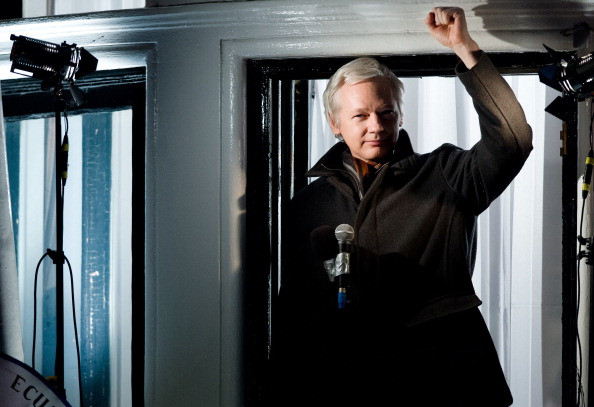Julian Assange: UN human rights expert calls on UK and Sweden to free WikiLeaks founder

A United Nations human rights expert has criticised the UK and Swedish governments for failing to act on the findings of a recent report that ruled WikiLeaks founder Julian Assange was being 'arbitrarily detained' in the Ecuadorian embassy in London.
Alfred de Zayas, who was appointed as the first independent expert on the 'promotion of a democratic and equitable international order' by the Human Rights Council in 2012, has now hit out at the lack of action, claiming that it "erodes the credibility" of the UN body.
"The findings of the Working Group on Arbitrary Detention (WGAD) should be accepted and their recommendations implemented in good faith," de Zayas asserted. "Especially those states who claim to be at the vanguard of human rights should give good example, even if they do not agree with the conclusions of UN experts.
"The international order depends on the consistent and uniform application of international law, and is undermined when States pick and choose. The concept of human dignity is holistic. An à la carte approach to human rights erodes the credibility of the entire system."
Earlier this month a UN panel ruled that Assange, who has been living under political asylum in the Ecuadorian embassy since June 2012, was being unlawfully detained, should be granted 'freedom' and could be liable for compensation. However, the UK government instantly rejected the claims of the council with Foreign Minister Philip Hammond referring to the ruling as "ridiculous".
Now, de Zayas has branded whistleblowers, such as Edward Snowden and Chelsea Manning who have both been linked with WikiLeaks, as "key human rights defenders" and said that it is a "matter of intellectual honesty" for major governments to abide by the UN decision. "Prompt implementation of the Working Group's opinion would set an example for the rest of the world," he said. "Human rights pledges should be given effect."
"Arguments lost"
Following the ruling, Assange took to the embassy balcony to respond to the UN verdict and condemned the UK and Swedish governments for their responses. "The UK and Sweden had their opportunity to appeal – they did not lodge an appeal," Assange told the press in a telecast. "They cannot now seek to object to the findings of a process, which they themselves were involved in for 16 months. It is the end of the road for the legal arguments that are being presented today by Sweden and UK. Put simply, those arguments lost."
Yet in the face of the UN ruling, British authorities have maintained that Assange still faces arrest if he steps out of the embassy. In light of this, Ecuador's Foreign Minister Ricardo Patino has reaffirmed that Assange was free to continue his stay at the embassy. "The basis on which we granted him asylum remains in place," he reaffirmed.
Assange has long voiced concern that if he hands himself over to authorities in Sweden, where he is wanted in relation to allegations of sexual assault, he would face the risk of extradition to the US to face prosecution for his work with WikiLeaks.
© Copyright IBTimes 2025. All rights reserved.




















